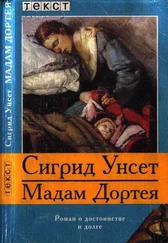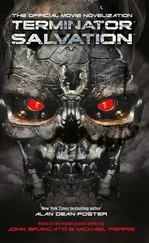But Mason, too, was a different person these days. In Bible study he often had trouble sitting still, instead bouncing around the room or pacing the floor like someone expecting major news or an important visitor any minute. He mixed up names and faces as he hadn’t done before. He mixed up Cole and Clem, for example, who, though they usually sat next to each other, looked nothing alike.
Riding his bike downtown one day, Cole saw Mason walking along, and though he waved and even called out, Mason ignored him.
Once again, as when they’d first met, Cole found Mason scary-looking. The same tense, starving-wolf look as the three men on the mountain. A wolf with one supersharp, blood-shot, ever-shifting eye.
Cole wasn’t the only one to notice a change in Mason.
“It’s like he’s shook up somewhere deep” (Tracy). Probably for the same reason as her own whirlpool-stomach feeling. It wasn’t just the two of them, either. It was another epidemic: more and more people feverish with the notion of living on the cusp of Something Big.
Partly it was the weather—though the era of extreme weather was old by now, and if the floods and droughts and violent storms that struck season after season really were a sign of the end, no one could say what the Lord meant by dragging it out. Once again that year, spring had brought a record number of tornado outbreaks and enough rainfall to cause flooding throughout the Midwest. Now it was heat waves. Late July was especially bad, and nowhere worse than in Chicago.
It’s been over a hundred for five days straight, and I’ve never felt humidity like this before. The anxiety level is pretty high, too, because everyone knows the city doesn’t have the resources to cope with an emergency.
With this message Addy sent Cole links to articles about the connection between extreme weather and global warming.
“Whatever you call it, and you can call it global warming or climate change or anything you want,” said PW, “it’s still the hand of God. Meaning it is part of his plan. And the only way we can understand any of it, or where God is going with it, is by praying and pondering Scripture and praying some more.”
Many Christians had grown up believing that the Gospel age would end in their lifetime. Many had taken it for granted that, when the pandemic struck, the final days had arrived. But as weeks and then months went by, people began craving a sign. Was it wrong to pray for a clearer idea of how much longer the world had to exist? There were a lot of pastors who differed from Pastor Wyatt about righteous Christian behavior in this regard. They believed time was so short that people should drop everything else and focus all their efforts on preparing for Christ’s return.
“And a little child shall lead them.”
“If you do not change and become like little children, you shall not enter the kingdom of heaven.”
On this point Scripture was clear. It was the small fry on earth who’d be the big fish in heaven. Look to the child for the way. It was because of this that rapture children were now more sought after than ever, and though child preachers were nothing new, congregations could not get enough of them.
Earlier that summer, during a service at a church in Denver, a three-year-old named Dewdrop had toddled down the aisle, cutting the minister off in midsentence by tugging at his trouser cuff. When the minister asked her what she wanted, she said, “I want to preach.” Struck (as Reverend Gates later explained) by the authority in her tone and the meaningful way she locked eyes with him, he lifted her up to the mike. And in a voice that managed to be at once like honey and a clap of thunder, she said, “Obey the Commandments. Love and forgive. Pray to the Lord, who is near.” Like a tsunami, was how members of the congregation described the wave of emotion that swept through the church. Many broke into loud weeping, flinging their heads back or their arms into the air. Others hurled themselves to their knees in the aisles, crying out to be saved. All was caught on camera, and soon more than a million people around the world had sent messages to Dewdrop asking her to pray for them.
There wasn’t really much of the child anymore about Clem Harley, who most people probably would have taken for older than his age of thirteen. He often seemed (people said) like a man in a boy’s body (the way Pastor Wyatt often seemed like a boy in a man’s body). With Pastor Wyatt too sick to do his duty, the Church of Salvation City’s boy preacher was called to step in. But those who’d seen videos of Dewdrop or of other famous baby preachers couldn’t get too excited about Clem. He had a crackly voice and a droning inflection, the complete opposite of Pastor Wyatt. And unlike Pastor Wyatt, Brother Clem never smiled.
Not that Clem wasn’t a prodigy. But knowing the Bible backward and forward as he appeared to do just made him seem even less childlike. No one complained, of course; no one would have wanted to hurt his feelings. Though his feelings must have been hurt anyway when people nodded off, as at least some did every sermon.
It was now common practice to ask if any children in the congregation had received a word to share with their fellow worshippers. Pastor Wyatt had started doing this at every service, but so far (in spite of some whispering and sharp elbowing here and there) no child had stepped forward. Each time, the disappointment in the air seemed to grow a little thicker. Then Pastor Wyatt would chide his flock for lack of faith and for the sin of impatience, quoting from Lamentations, “The Lord is good to those who wait for him,” and from the book of James, “Be patient, then, my brothers and sisters, until the coming of the Lord.”
And, according to Clem, “If they hadn’t been so darned impatient, Adam and Eve would still be in Paradise.”
“I KNOW ABOUT YOU AND MASON.”
Had he actually said it? Starlyn’s face left no doubt that he had. And instantly Cole was sorry. And he was even more amazed: where had he got the nerve?
They were alone in the house. An hour ago, someone had called to say that one of Boots’s grandsons, Jeptha, a leader in the Christian Zionist Defense League, had been killed by rocket fire in the Holy Land. Tracy and PW had gone to be with the Ludwig family.
Starlyn was using the computer in the kitchen while Cole waited his turn. He wondered if there’d be a message from Addy. He hadn’t heard from her in a few days, which was unusual, but he figured it was because of the heat wave. The last time they’d spoken, Chicago was having power outages and Addy was in full-frontal freak. She had called from her cell, warning that it was almost out of power and they might get cut off.
“Yesterday it hit a hundred and seven. When there’s a blackout all Lara and I can do is lie on the bare floor with wet paper towels stuck to our skin. Hello? Last night you could smell fire and hear sirens and gunshots and alarms going off—it was like a war zone. Hello? You still there? In the bad neighborhoods people are afraid to go out no matter how hot it gets. Some people have died because they were too scared to leave their windows open and their apartments turned into ovens. They say it’s like—hello? They say it’s like the flu all over again, with hospitals shutting their doors and the morgue running out of—hello? I feel like if I have to stay here much longer I’ll lose my mind. I’m going to—” End of call.
Cole hadn’t heard from Addy since, but he thought he knew what she’d been about to say. She’d been about to say that she was coming to Salvation City, where it was several degrees cooler and where so far they’d had only one little brownout and of course no arson or looting at all.
Читать дальше













